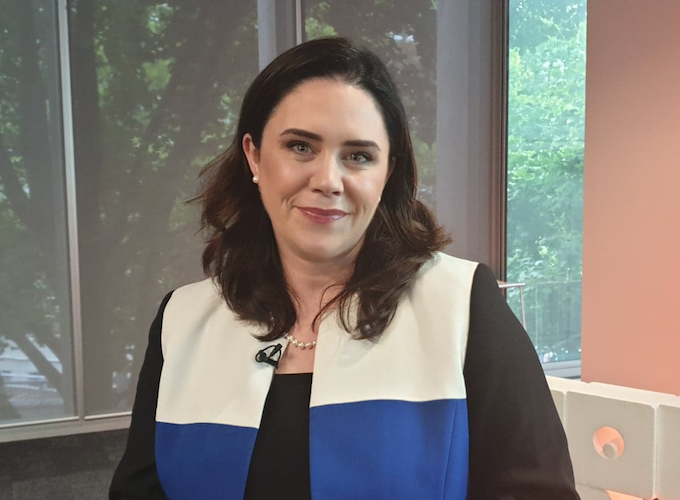
By Sri Krishnamurthi
Global technology and business leader Dr Anita Sands has warned against allowing digital technology to take over democracy on the eve of the first anniversary of the Christchurch mosque massacre last year.
Dr Sands, who hails from Ireland but is based in Silicon Valley, California, served or serves on the board of several software and cloud companies.
“Democracy depends on communication and deliberation, free press and countervailing forces to hold the powerful accountable,” she said in her keynote address “Digital Disruption and the New Democracy” this week organised by Project Connect at Auckland University of Technology.
READ MORE: Shoshana Zuboff on surveillance capitalism
“In a couple of weeks’ time we will commemorate the first anniversary of the Christchurch tragedy and a day of immeasurable sorrow when the world finally gained an appreciation for the very darkest implications of technology and how it can serve as a breeding ground for extremists and an outlet for their putrid beliefs,’’ she said.
On March 15 last year, a gunman attacked Al Noor Mosque in Riccarton and the Linwood Islamic Centre, killing 51 people. The first attack was streamed live on Facebook and other social media.
Australian white supremacist Brenton Tarrant faces 51 charges of murder, 40 of attempted murder and one under the Terrorism Suppression Act. The trial is due to begin in June.
“In the case of traditional media, we’ve put guardrails around what is appropriate in certain contexts – ratings on movies, warnings before clips are shown on television, censorship of inappropriate content but no such provision exists on the internet until the tragic events of Christchurch last year,” Dr Sands said.
Christchurch Call tackles terrorism
The “Christchurch Call” was the first attempt, after the mosque attack, to bring together countries and tech companies to end the ability to use social media to organise and promote terrorism and violent extremism.
World leaders from 48 countries and technology companies, including Facebook, Google, Twitter, YouTube and Microsoft, pledged to eliminate terrorist and violent extremist content online at the Paris summit.
“In one of the most vocal and effective calls for action by your prime minister, [Jacinda Ardern] challenged the international community and the technology industry to devise a 21 st century response to this atrocious event.
“As a result of the Christchurch Call, a broad coalition of countries and companies have come together and made meaningful progress on curtailing and reacting to extremist content and hate speech.
“They’ve agreed to standards and crisis protocols, they’ve committed to investing in technology to combat this evolving issue, as well as funding research into how terrorist groups actually behave and use technology,” she said.
“Terrorism and extremism are one corner where humanity unquestionably has to draw a line in the sand and fight back, and defending democracy is another,” said Dr Sands, who earned her PhD on atomic and molecular physics from Queens University, Belfast and has a masters degree in public policy and management from Carnegie and Mellon University, Pittsburgh, where she was a Fulbright scholar.
The onus was clearly on every person as an individual to be wary of the sound bites in online platforms, the former all-Ireland speaking champion said.
‘Playing our part’
“As individuals we also have to play our part in committing to critical thought and more vigilant around how and where we get the news,” Dr Sands said.
“Countries like New Zealand are better off than others that are already suffering the effects of an information environment that is so polluted that nobody knows what to believe anymore.
“New Zealand is fortunate that your mainstream media has not yet deteriorated to where in itself it is a polarising bubble. You still have a highly respected free press and public broadcaster which is as much a representation of your commitment to independent thought as a source of your news, and because of them a proper and civilised debate still exists here,” she said.
However, she warned: “Democracy in the digital age isn’t just a whole new playing field, it is a whole new game and we have to catch up quickly on how it is being played.
“Harvard professor Shoshana Zuboff has written extensively about this evolving paradigm which she calls surveillance capitalism and to the capitalists their most precious asset is our most precious asset —our attention, the currency of this new capitalism is our behaviour, every facet which is translated into data and then sold.
“We aren’t customers, we are merely the raw materials that are fed to the real customers, the advertisers.
“As individuals we freely share every facet of our lives without realising it, as we deposit more of attention, they withdraw more of our autonomy without realising we are a society in shackles,” she said before drawing on a witty analogy.
Customers as ‘users’
“It has always struck me as interesting that there are only two industries who refer to their customers as ‘users’ – drug dealers and software developers, and both are in the addiction game.
“In this age of surveillance capitalism, online platforms are in a race to capture our attention which means they have to get us addicted to using their technology.
“As the Netflix CEO once very famously said when he was asked ‘who do you compete with?’ he said, ‘we compete with sleep’.”
Be aware of what the public has to deal with in the digital age, Dr Sands said.
“They [tech companies] do that by unleashing these powerful algorithms that can predict with astonishing accuracy what will keep you there,” she said.
“We end up in what we call filter bubbles, seeing a newsfeed that is entirely unique to each one of us, designed to appeal to your most primal and powerful emotions.
“Humanity has created a puppet that now knows how to pull on the strings of its master.”
This timely warning comes as New Zealand heads to the polls on September 19.













































